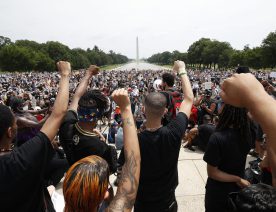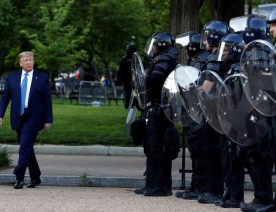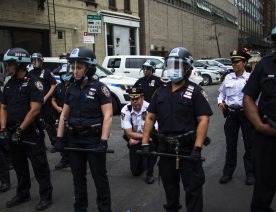
Most Americans say that racism is a serious problem in the country, and almost half say the same about police violence against the public. The latest poll from The Associated Press-NORC Center for Public Affairs Research was conducted as protests spread across the country in response to the killing of George Floyd, a handcuffed black man who died after a white police officer pressed his knee into Floyd’s neck for several minutes. At the same time, the country continues to deal with the coronavirus pandemic, which has cost more than 100,000 American lives and caused unemployment for millions.
While attitudes among Americans overall and white Americans in particular are shifting, there are still large gaps in how black and white Americans view racism and police violence. For example, 83% of black Americans regard police violence against civilians as a serious problem in this country, compared to 39% of white Americans.
Five years ago, black and white Americans were sharply divided on whether police officers who injure or kill civilians are treated too leniently by the criminal justice system. Now, most Americans, regardless of race, say police receive favorable treatment. Growing numbers of both black and white Americans say white people receive preferential treatment when dealing with law enforcement, employment, health care, and while shopping.
While a majority of Americans agree that racism is a serious problem, black and white Americans have differing views on the severity of the problem.
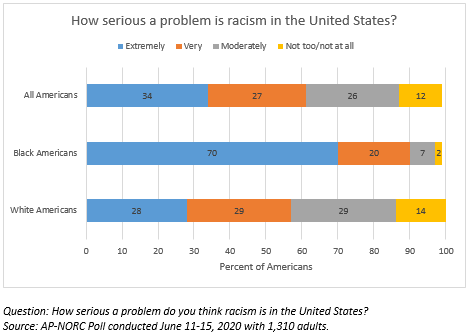
Partisan differences emerge among white Americans. Eighty-three percent of white Democrats say that racism is a serious problem in the United States, while just 36% of white Republicans and 50% of white independents agree.
Forty-eight percent of Americans say police violence against the public is a serious problem. More white Americans say police violence against civilians is problem compared with 2015, but a large racial gap remains.
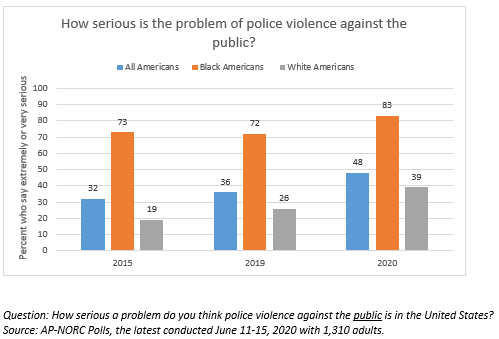
Growing numbers of Americans say police are more likely to use deadly force against black people than white people. While there is still a large gap between the attitudes of white and black Americans, white people are now more inclined to say deadly force is more apt to be used against black people than to say that race has no effect.
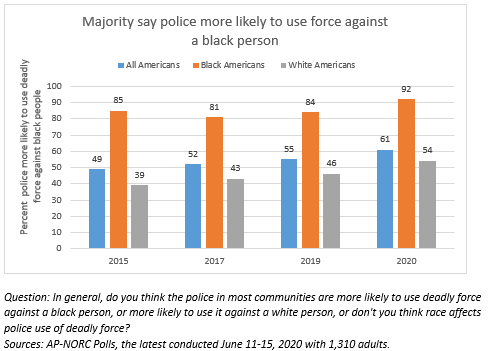
Sixty-five percent of Americans believe that police officers who cause injury or death in the course of their job are treated too leniently. In comparison, just 41% said the same in 2015. Further, almost half of white Americans (46%) said these police officers were treated fairly in 2015; only 32% now say the same.
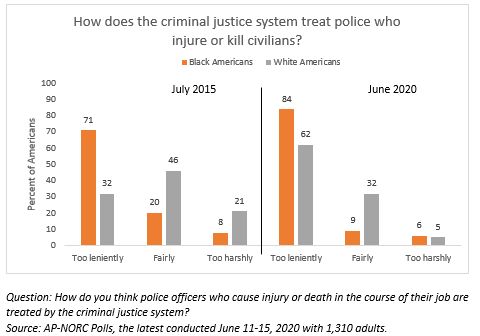
While a majority of Americans, regardless of race, agree that white people are treated more fairly by police, there is no clear consensus when it comes to other situations such as job applications, shopping in malls or stores, or getting healthcare. In these cases, there is far less awareness among white Americans.
Seventy percent of white Americans say white people are treated more fairly by police, up from 59% last September. For the other situations, the increases among white people are more modest or not significant.
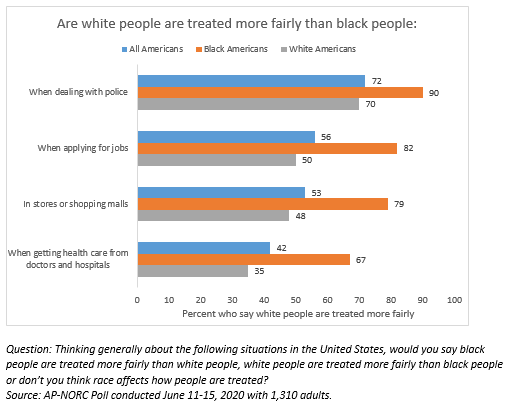
Fifty-one percent of blacks report having been treated unfairly by a police officer specifically because of their race. This number is similar to 2015 when 50% of blacks reported the same.
Americans who feel police have mistreated them because of race are more likely to have a negative opinion of law enforcement than those who have not had racially shaded encounters with police. Black Americans who have had a negative experience are more likely than those that haven’t to feel that police violence is a serious issue (96% vs. 85%) and that police misconduct is dealt with too leniently (91% vs. 76%).
There is also growing pessimism about the direction of the country with 74% saying the country is headed in the wrong direction.
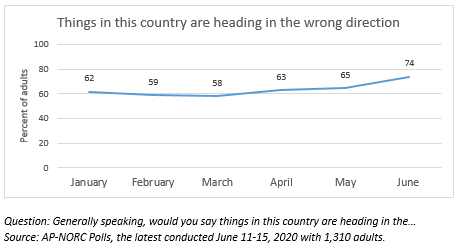
In May, black Americans were more likely than whites to say the country was heading in the wrong direction (80% vs. 61%). Currently, nearly the same number of black and white Americans say things are on the wrong course (74% and 75%).
And there is not much expectation for improvement over the next year. Thirty-six percent say that, overall, things will get better in the country in the next year. However, 24% think things will stay the same, and 38% expect it to get worse. Black Americans are more likely than whites to say that things will get worse (48% vs. 35%).
The nationwide poll was conducted June 11-15, 2020 using the AmeriSpeak® Panel, the probability-based panel of NORC at the University of Chicago. Online and telephone interviews using landlines and cell phones were conducted with 1,310 adults. The margin of sampling error is +/- 3.7 percentage points.
In addition, black adults were sampled at a higher rate than their proportion of the population for reasons of analysis. The overall margin of sampling error for the 377 completed interviews with black respondents is +/- 5.3 percentage points.


